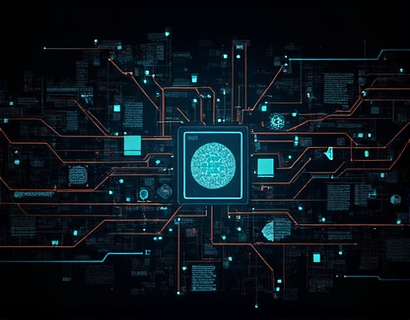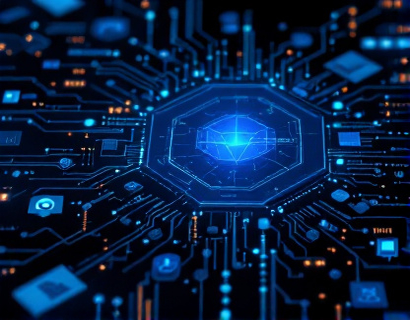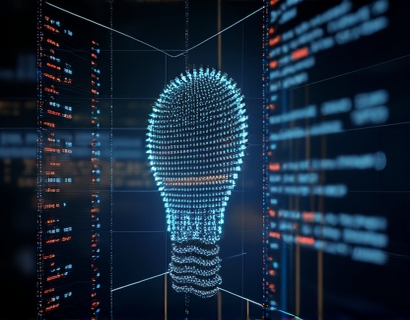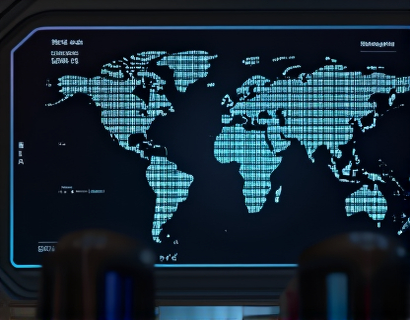Unleashing Next-Gen Productivity: The Synergy of AI and Crypto
The intersection of artificial intelligence and cryptocurrency is giving birth to a new era of digital productivity. This fusion is not just a technological curiosity but a transformative force that is redefining how we approach workflows and daily tasks. As we delve into this topic, it's essential to understand the foundational technologies driving this change and how they are being integrated to create innovative solutions.
Artificial intelligence, with its ability to process vast amounts of data and learn from patterns, has become an indispensable tool in various industries. From healthcare to finance, AI is enhancing efficiency and accuracy. Cryptocurrency, on the other hand, has disrupted traditional financial systems by introducing decentralized, secure, and transparent transactions. When these two technologies converge, the potential for innovation is immense.
Enhancing Workflow Efficiency
The integration of AI and cryptocurrency is streamlining workflows in unprecedented ways. For instance, smart contracts on blockchain platforms can automate and enforce contractual obligations without the need for intermediaries. AI can optimize the execution of these smart contracts by analyzing data in real-time, ensuring that all conditions are met efficiently and accurately. This synergy reduces manual intervention, minimizes errors, and accelerates processes.
In the realm of project management, AI-driven tools can predict project timelines and resource allocation with high precision. By analyzing historical data and current trends, these tools can suggest optimal workflows and identify potential bottlenecks before they occur. Cryptocurrency can facilitate seamless payments and incentives within these workflows, ensuring that all stakeholders are motivated and rewarded fairly.
Secure and Transparent Collaboration
Collaboration is a cornerstone of modern productivity, and the combination of AI and cryptocurrency enhances this aspect significantly. Blockchain technology provides a decentralized and immutable ledger, ensuring that all collaborative efforts are transparent and tamper-proof. AI can further enhance this by analyzing collaboration patterns and suggesting improvements.
For example, AI can monitor communication channels and identify the most effective communication strategies based on team dynamics and project requirements. Cryptocurrency can be used to reward contributors based on their engagement and impact, creating a fair and motivating environment. This dual approach not only fosters trust but also drives higher productivity and innovation.
Decentralized Data Management
Data is the new oil, and its management is crucial for any organization aiming for digital excellence. The integration of AI and cryptocurrency offers a decentralized solution for data management, addressing concerns around privacy and security. Blockchain-based platforms can store and manage data in a distributed manner, ensuring that users retain control over their information.
AI plays a vital role in this ecosystem by providing advanced data analytics and security features. Machine learning algorithms can detect anomalies and potential security threats in real-time, protecting sensitive information. Additionally, AI can optimize data storage and retrieval processes, making it easier for users to access and utilize their data efficiently. Cryptocurrency transactions can facilitate secure and transparent data sharing agreements, ensuring that all parties are compensated fairly for their contributions.
Tokenized Incentives and Gamification
Tokenization, a key feature of cryptocurrency, is revolutionizing incentive structures in various domains. By creating digital tokens that represent value, organizations can motivate users and employees in innovative ways. AI can enhance this process by designing tokenized incentive systems that are tailored to specific goals and behaviors.
For instance, in a corporate setting, AI can analyze employee performance and suggest a token reward system that aligns with company objectives. These tokens can be used within a closed ecosystem, such as accessing premium tools or services, or even traded for fiat currency. This gamification approach not only boosts motivation but also aligns individual efforts with organizational goals.
Automated Financial Management
The financial aspect of productivity is another area where AI and cryptocurrency are making significant impacts. Traditional financial management is often cumbersome and prone to errors. AI-driven financial tools can automate tasks such as budgeting, forecasting, and compliance checks, freeing up time for more strategic activities.
Cryptocurrency adds a layer of efficiency and transparency to financial transactions. Smart contracts can automate payments and settlements, reducing the need for intermediaries and lowering transaction costs. AI can optimize these processes by analyzing market trends and adjusting financial strategies in real-time. This dynamic approach ensures that organizations are always operating at the most efficient point.
Enhancing Cybersecurity
As digital productivity becomes more integral to business operations, cybersecurity threats are on the rise. The combination of AI and cryptocurrency offers robust solutions to enhance security. AI can detect and respond to cyber threats in real-time, using machine learning to adapt to new attack patterns. This proactive approach is far more effective than traditional security measures.
Cryptocurrency, particularly through the use of private and secure blockchain networks, provides a secure environment for sensitive data and transactions. The decentralized nature of blockchain makes it extremely difficult for hackers to compromise the system. AI can further strengthen this by continuously monitoring the network for any unusual activity and implementing countermeasures automatically.
Future Prospects and Challenges
The future of AI and cryptocurrency in productivity is promising, but it is not without challenges. One of the primary hurdles is the need for widespread adoption and understanding of these technologies. Education and awareness campaigns are essential to bridge the knowledge gap and encourage more organizations to embrace these innovations.
Another challenge is the regulatory landscape. As these technologies evolve, governments and regulatory bodies are still catching up. Clear and supportive regulations are necessary to foster growth while ensuring consumer protection. Collaboration between tech innovators, policymakers, and industry experts is crucial in this regard.
Technical challenges also persist, such as scalability and interoperability. Blockchain networks need to handle higher transaction volumes without compromising speed or security. AI systems must be designed to work seamlessly across different platforms and systems, ensuring a cohesive and integrated experience for users.
Conclusion
The fusion of AI and cryptocurrency is unlocking new dimensions of digital productivity. By enhancing workflow efficiency, ensuring secure and transparent collaboration, managing data effectively, implementing tokenized incentives, automating financial processes, and bolstering cybersecurity, this synergy is set to redefine the future of work. While challenges remain, the potential benefits are immense, making it a journey worth undertaking for tech innovators and early adopters. As we continue to explore and harness these technologies, the possibilities for next-gen productivity solutions are truly limitless.










































